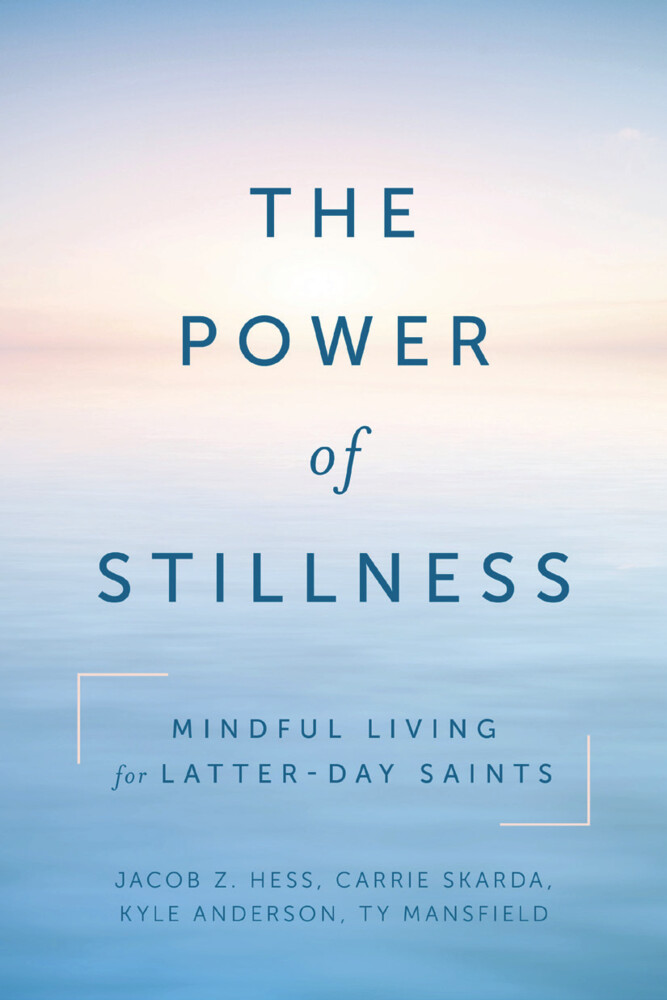I know I’m not alone when I say that fasting is sometimes a struggle. But I recently heard something that has reawakened my sincere desire to fast—so much so that I’m even looking forward to it this Sunday.
Fasting is a Cure For Our Busy World
Carrie Skarda, author of The Power of Stillness, was recently a guest on the Magnify podcast where she said, “Fasting is a time to use our whole bodies as a way of being pruned back and just focusing our attention on spiritual things.”
As we focus our attention just on spiritual things, we experience stillness. And our souls need that stillness to feel full and satisfied.
“My temperament is to be constantly on the go,” Carrie says. “It’s been a real lesson for me to learn the value and joy that can come from pausing. … The ‘doing, doing, going, going’ can start to feel hollow and draining, so we’re hungry for something different and we don’t even know what it is we’re hungry for.”
I relate to what Carrie says. My daily life with easy access to TV, movies, and social media makes it easy for an entire day to go by without a moment of stillness. There is always a distraction readily available. And that sort of life can leave your soul hungry for something real and meaningful.
Gratefully, Heavenly Father knew that our modern lives would be this way, so He set aside time in our religious practice for stillness. The sacrament, temple worship, prayer, and scripture study are all opportunities for stillness. But what I find so interesting is that fasting is the only practice where we use our entire bodies.
Examples of Whole-Body Stillness in the Scriptures
That’s not to say that fasting is more important or more powerful than other spiritual practices, but it is unique. The Savior Himself used fasting during a special time in His mortal life: to prepare for His ministry, He completed a lengthy fast alone in the desert. I think He must have known how full your spirit feels when your body is a bit empty.
I’m beginning to see that perhaps fasting is unique because it doesn’t ask for your time, possessions, or intellect. It asks for your physical being. Maybe that’s why Alma once chose this particular phrasing: “They had given themselves to much prayer, and fasting.”
And what happens as we pause to give our attention, our time, and ourselves to the Lord? We are filled spiritually. My choice to have an empty belly on fast Sunday is a choice to live a full life. When the Resurrected Savior instituted the sacrament to the Nephites, the scriptures say, “They did drink, and they were filled.”
And I don’t think we are talking about stomachs being satiated with a drink; we are talking about souls no longer pained with hunger.
I’ve found my focus for this coming fast Sunday: to fill my soul. I’ve been sufficiently reminded that a few hours of hunger are a small price to pay for a soul filled with the Savior’s promise: “I am the bread of life: he that cometh to me shall never hunger; and he that believeth on me shall never thirst.”
If you are interested, here are some other beautiful reasons for fasting we don’t often consider:
- Fasting helps us feel compassion for those who regularly experience hunger. (See “Fasting Strengthens Us Spiritually and Temporally”)
- We can use fasting can show our gratitude to God (see Alma 45:1).
- Fasting can be a tool to help us make hard changes in our lives (see Matthew 17:21).
- Fasting can help us express our sorrow and mourning and seek comfort (see Alma 28:4–6).
- Fasting can help us know what to do in a difficult Church calling (see Alma 17:3).
For more articles related to fasting and stillness, check out the articles below.
▶ If I can’t fast, how can I approach fast Sunday?
▶ The most productive thing you can do for your testimony is also the simplest
▶ ‘How do you avoid getting overwhelmed?’ Sharon Eubank’s brilliant and simple answer
▶ Elder Bednar’s 3 tips for having the Holy Ghost as a constant companion (rather than an occasional visitor)



